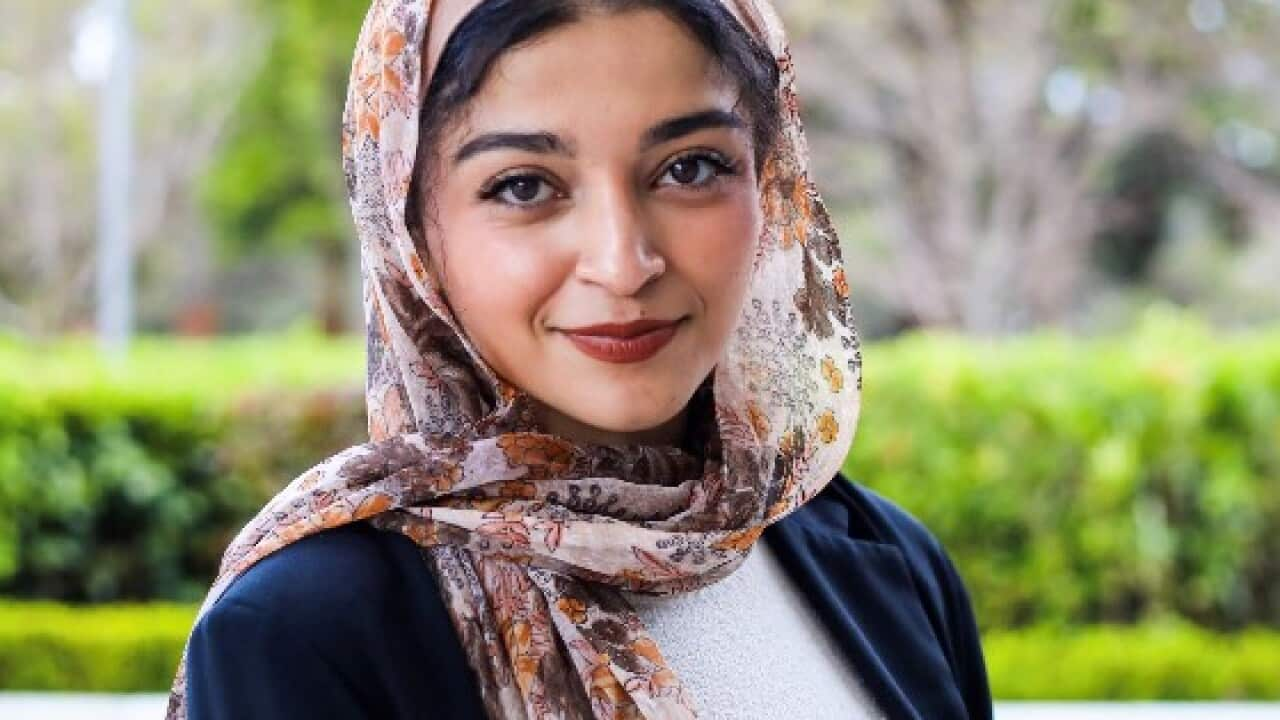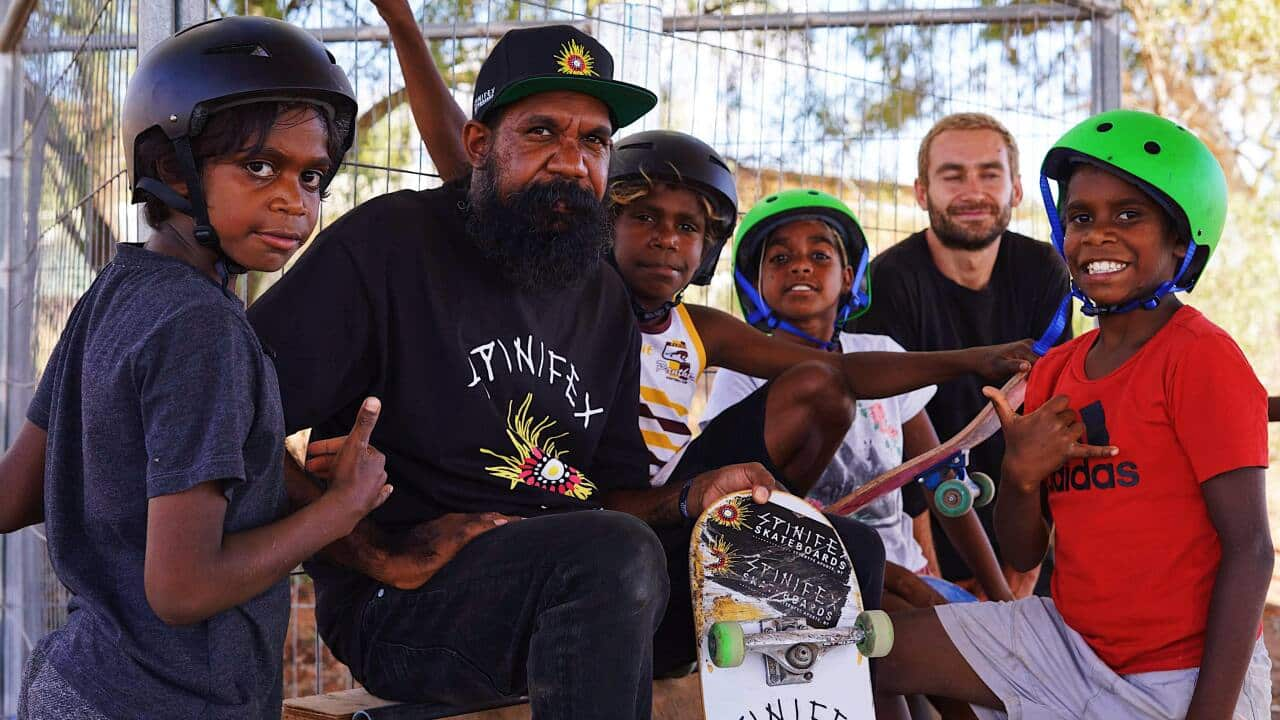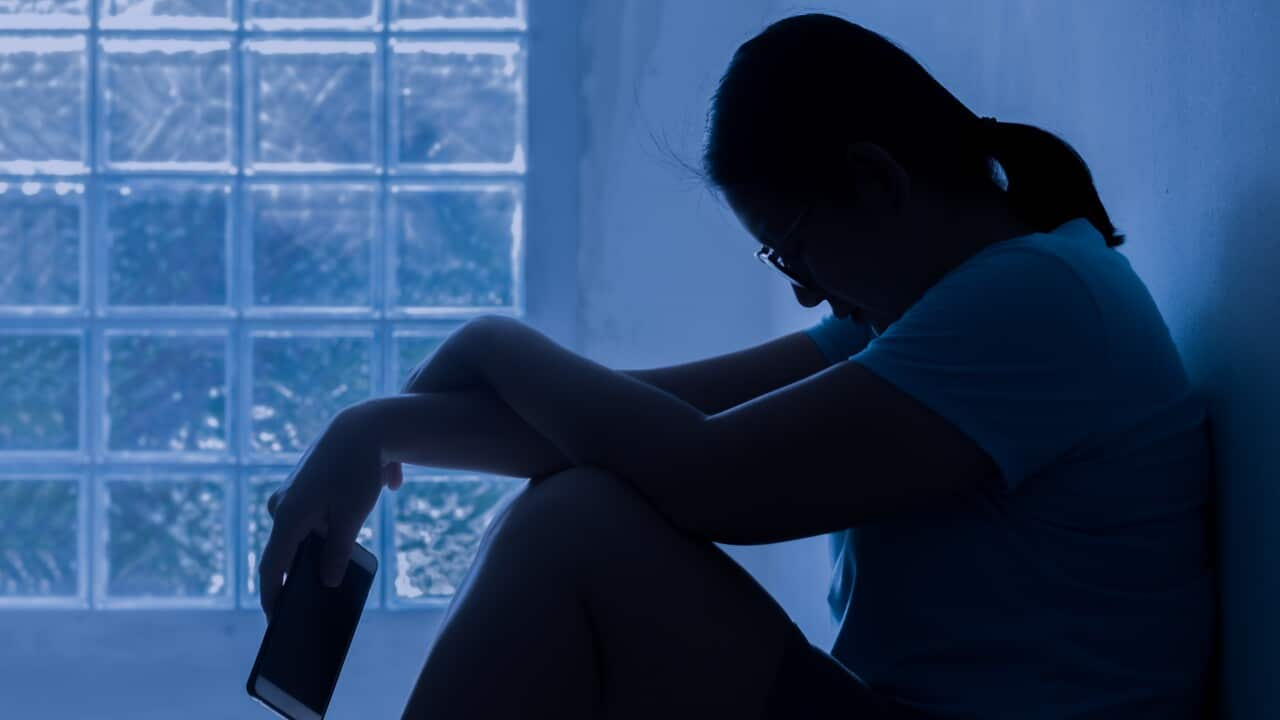Young people from migrant and refugee backgrounds in Australia are calling for a greater say in policies that affect them at this federal election.
With just over a week to go until the election on 21 May, multicultural youths say they are disappointed with the lack of engagement from politicians with the issues that impact them.
Rahim Mohammadi, 21, said he is frustrated that there is not more on offer from candidates to appeal to young people, particularly those from migrant or refugee backgrounds.
"You don't feel that support, you don't feel that help," Mr Mohammadi, told SBS News.
"And you always feel like an outsider no matter what. And so it's just so, so important. Because people need to be felt like they're heard."

Rahim Mohammadi of Multicultural Youth Advocacy Network.
Mr Mohammadi, arrived in Australia in 2003 as a refugee from Afghanistan, settling in Brisbane with his family.
Speaking no English and not having any support network in place, he says it took five or six years before he was able to settle in.
"I would get bullied constantly in schools ... walking around with my family, we'd always get that stares from people. Our neighbours would always throw junk over their fence towards us," he said.
"We'd have people come knock on our doors in the middle of night, trying to scare us and get us out of our houses.
"It was terrifying. You know that? It feels like a nightmare when you think about it."
A nursing and psychology student, he never thought he would be stepping into an advocacy role with MYAN. But after the pandemic's impacts on multicultural youth in Australia, he felt compelled to speak up.
"Mental health in general has always just been such a stigma in Australia. And especially for someone who's newly arrived to Australia or migrated to Australia. The problems that they face are so much more unique, and so much more complex than an average mental health case," he said.
The network has held regular round-tables around the country, including regional Australia, over the past six months involving a couple of hundred multicultural youths.
The issue of mental health emerged as a big theme among the participants, after more than two years of the pandemic.
Carmel Guerra has been the chairperson of MYAN for the last 12 years, covering a period of four federal elections.
She says the pandemic saw , but many young migrants and refugees are still not getting the help they need.
"Definitely mental health has been at the forefront. What concerns us is though, that the mental health focus is based on traditional models of mental health outreach, which a lot of the young people we work with don't access," Ms Guerra told SBS News.
"Most of the mainstream youth mental-health services have a less than 20 per cent uptake rate of multicultural young people, so something's not right for that to be happening.
"We'd like for there to be a greater reflection on changing the models and working with communities on how to get information out — not just to the young people but also to parents," she said.
In Perth, 21-year-old Zahra Al Hilaly also took part in the round-table.
Born in Australia to parents from Palestinian and Iraqi backgrounds, she says discrimination is a lived experience for her and it was a factor in her decision to study law and journalism.
"I think, as a young advocate, wearing the hijab and being a most visible Muslim, I've unfortunately faced the [worst] of discrimination and racism within this country across many years of my life. So working within this area really did help actually expose the issues of young people not actually putting their hand up to take part in politics."
Ensuring better gender and cultural diversity at all levels of leadership in society is something she wants to see.
And that's why Ms Hilaly is backing MYAN's call for the development of national youth policy recognising the needs of multicultural youth.
This would be driven by a dedicated federal youth minister in the cabinet; and the creation of a federal Youth Advisory Council, featuring multicultural youths under the age of 30.
"When we explore a federal Youth Advisory Council, I think it's super important to recognise that some states, unfortunately, don't have those platforms to speak up and speak loud," she said.
"So having a federal body that does better represent and recognise the diverse constituents of all young people, across all geographical backgrounds, will be a pivotal move towards actually centralising young people's voices at the highest level of government."
Observing the conduct of the politicians in the last three years and also during this election campaign, Ms Hilaly said it has been discouraging for people like herself, who might consider possibly entering politics one day.
"Politics gets quite dirty. And when I'm specifically speaking to migrant and refugee communities, many communities that I've been a part of and have engaged with, have been very frightened to even speak up against, or speak out loud of their thoughts of what's going on in this current election, in this current climate of things," she said.
"Ultimately, many of us do tend to hold our tongues because of the experiences of being excluded from this country," she said.
In the decades since the dismantling of the White Australia policy in 1973, the most recent waves of migration have been from non-European countries: Asia, the Middle East, South America and Africa.
But the cultural diversity in Australia's parliament does not reflect that and it is behind countries such as the US, New Zealand and Canada.
Only four per cent of federal MPs in Australia have non-European ancestry, compared to 19 per cent of the Australian population, according to a 2018 report by the Australian Human Rights Commission.
The disparity is particularly stark when looking at those with Asian heritage in the population and in the parliament.
In Australia, those with Asian heritage make up an estimated 14.7 per cent of Australian adults — a level similar to the US, New Zealand and Canada.
Of the 227 members in Australia's federal Parliament, 2.2 per cent — or five MPs, including Labor Senator Penny Wong, Liberal member for Chisholm Gladys Liu, Liberal member for Moore Ian Goodenough, Liberal member for Wentworth Dave Sharma, and the Green Senator Mehreen Faruqi — have Asian or south-Asian heritage.
In New Zealand, the proportion of MPs with Asian heritage is at more than 5 per cent, in Canada it is at 12.8 per cent and in the United States it is at 3.8 per cent.
For Mr Mohammadi, he feels he is finally hitting his stride.
He says advancing in his studies in nursing and psychology allows him to look after both the physical and mental well-being of the people he works with.
And for him, it is about belonging and inclusion.
"You're putting yourself out there and advocating on behalf, not just of yourself, but others," he said.
"It gives you that sense of responsibility for things that happen in your country and in this society.
"Especially like me, when I was from a refugee background. When I first came to Australia, I felt like I was an outsider, a sort of imposter.
"But the more you integrate yourself into the community, and within society, you start to really feel for how things go; you want to see the country improve," he said.












